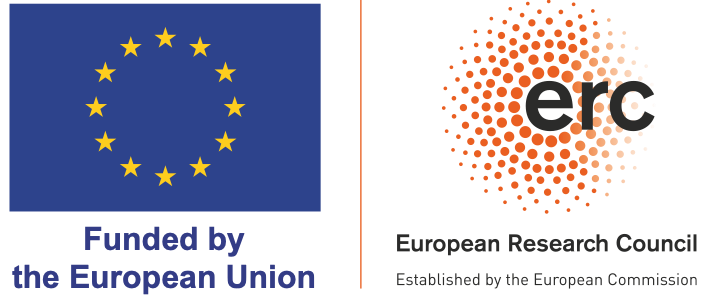Principal investigator
Alessandro Gandini
The Principal Investigator of CRAFTWORK is Alessandro Gandini. He is Associate Professor of Cultural Sociology at the University of Milan, Department of Social and Political Sciences. His research deals with the relationship between technology and society, with a specific focus on digital work cultures and digital methods.
Postdoctoral researcher
Gaia Casagrande
Gaia Casagrande obtained her Ph.D. in 2021 at the Department of Communication and Social Research, Sapienza University of Rome. In her doctoral thesis, she analyzed self-branding practices on social media platforms and discussed the concept of relational labor. Her research interests mainly concern new communication technologies and their social implications, and critical media theory. In detail, her studies focus on platform studies, digital labor, critical media and internet studies, social movements and media activism, and commercial drones. Before joining the project ‘CRAFTWORK’ as postdoctoral researcher, she worked as agency staff at the European Commission, DG COMM Media Monitoring & Eurobarometer, and as GTA and Visiting Ph.D. Researcher at the Department of Digital Humanities, King's College London.
Postdoctoral researcher
Gianmarco Peterlongo
Gianmarco Peterlongo obtained his PhD in Sociology and Social Research at the University of Bologna. He is currently a researcher at the University of Milan, where he works in the ERC Craftwork project. In 2023 he published for Rosenberg & Sellier the book 'Nella trama dell'algoritmo. Lavoro e circuiti informali nella gig-economy' His research focuses on themes related to the futures of work and forms of employment in contemporary societies, with particular attention to the role of urban informality and the impact of digital technologies, using qualitative and ethnographic methodologies. In recent years, he has conducted several research periods abroad, particularly in EU countries and Latin America.
Postdoctoral researcher
Giulia Giorgi
Giulia Giorgi is post-doctoral researcher at the Department of Social and Political Sciences of the University of Milan. In 2022, she obtained her PhD in Sociology and Methodology of Social Research with a dissertation combining digital data and qualitative research. She also collaborated with the NGO AI Foresincs (previously known as Tracking Exposed) as part of the data analysis team in projects for the algorithmic auditing of TikTok. Her main areas of expertise include: digital methods, visual methods, digital cultures, memes, youth cultures, and cultural sociology.
Postdoctoral researcher
Marta Tonetta
Marta Tonetta is a post-doctoral researcher at the Department of Social and Political Sciences, University of Milan. She holds a PhD in Sociology and Methodology of Social Research from the Network for the Advancement of Social and Political Studies. By bringing together urban sociology and economic sociology, she researches, in the disorder, about the transformations of the middle-classes (neo-craft workers; new rentiers); digital platforms and platform urbanism; short-term rentals, housing dynamics and social stratification and inequalities; urban and rural change and gentrification. Her works adopt ethnographic, qualitative, and mixed-method approaches.
Collaborators
Framework
The ERC, set up by the European Union in 2007, is the premier European funding organisation for excellent frontier research. It funds creative researchers of any nationality and age, to run projects based across Europe. The ERC offers 4 core grant schemes: Starting Grants, Consolidator Grants, Advanced Grants and Synergy Grants. With its additional Proof of Concept Grant scheme, the ERC helps grantees to explore the innovation potential of their ideas or research results. The ERC is led by an independent governing body, the Scientific Council. Since 1 November 2021, Maria Leptin is the President of the ERC. The overall ERC budget from 2021 to 2027 is more than €16 billion, as part of the Horizon Europe programme, under the responsibility of the European Commissioner for Innovation, Research, Culture, Education and Youth, Iliana Ivanova.
